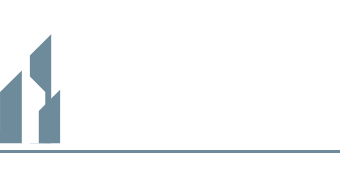The following first appeared on EnergyNow.ca on June 1, 2021.
 Watts Projects Inc. is Western Canada’s leading facility, pipeline, and secondary containment construction company. Since 1996, we have been building exceptional projects – from single well-site construction to large gas processing plants, they can handle all of your construction needs.
Watts Projects Inc. is Western Canada’s leading facility, pipeline, and secondary containment construction company. Since 1996, we have been building exceptional projects – from single well-site construction to large gas processing plants, they can handle all of your construction needs.
Watts Projects is a family-owned business with deep roots in the oil and gas industry, and is committed to safety, innovation, and the community. With offices across Alberta and British Columbia, they have been able to expand themselves as a company, and their communities in which they live and work. As a culture, their focus on innovation and smart solutions encompasses everything they do. They are always looking for ways to increase their efficiency in projects and within their own organization. They work to stay at the forefront of safety and environmentally responsible construction for support safety and deliver quality work and service.
Their experience has given them a deep and comprehensive understanding of the markets they serve, as well as the ability to effectively manage people, projects, and equipment; proactively identify challenges; avoid pitfalls; and overcome obstacles to meet expectations for schedule and budget.
VISION
Watts Projects Inc. responsibly thinks, designs, and implements solutions for facility and pipeline projects. They always look at the future, never losing the focus on the current technical knowledge. Their goal is to implement sustainable solutions for the new generations. Their driving force for success is, above all, the employees that belong to the Watts family and its future.
CAPABILITIES
Their expertise and technical resources fuel the delivery of their services. As a leading provider of construction services, Watts Projects focuses on providing solutions for facility construction, pipeline construction, fabrication, secondary containments, and spray coatings.
CAPACITY
Capability Range – contract values up to $25+ Million
FACILITY CONSTRUCTION
Watts Projects are equipped and experienced in the areas of Sweet Gas, Sour Gas, Oil, and Condensate. Their team of expert Fabrication Welders and Pipefitters combined with excellent in-house fabrication facilities and equipment, allow them to be very cost effective while providing the utmost in quality control.
PIPELINE CONSTRUCTION
Watts Projects is well experienced in all aspects of pipeline construction. Their well-trained and highly qualified crews have completed countless pipeline projects in challenging and adverse conditions, on schedule and with attention to quality control and safety at the workplace.

FABRICATION
Watts Projects offers a complete compliment of manufacturing and fabrication services, all in-house at their Red Deer Facility. Their fully equipped welding and fabrication shop capabilities saves their customers time and money, supports schedule limitations, and helps reduce risks posed by inclement weather and labour shortages.
SECONDARY CONTAINMENTS
Watts Projects specializes in the supply, fabrication, and installation of high-quality geo-synthetics and civil construction projects that support critical infrastructure while helping to protect the environment. With extensive installation, sales, project management, and technical expertise they excel at working with you in the consultation, planning, and execution phase of any Secondary Containment project to get the job done right, on time, and on budget.
COATING SOLUTIONS
Watts Projects spray-applied Secondary Containment coating systems are some of the strongest in the industry. Backed by over 20 years of experience, their projects provide environmental protection and meet regulatory requirements for their clients throughout Western Canada.
For more information on Watts Projects Inc., visit their website at www.wattsprojects.com.



